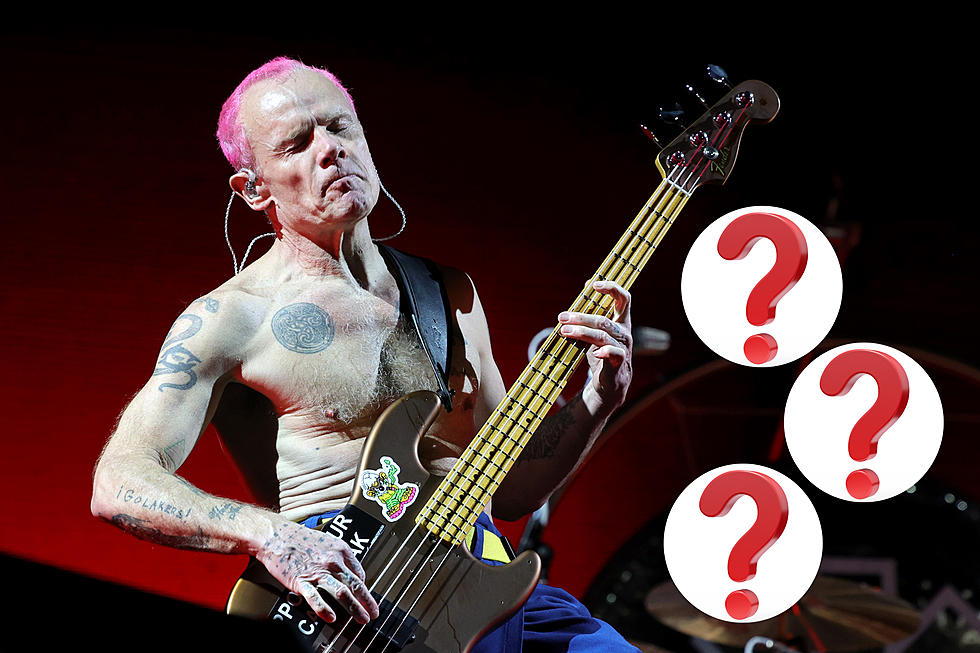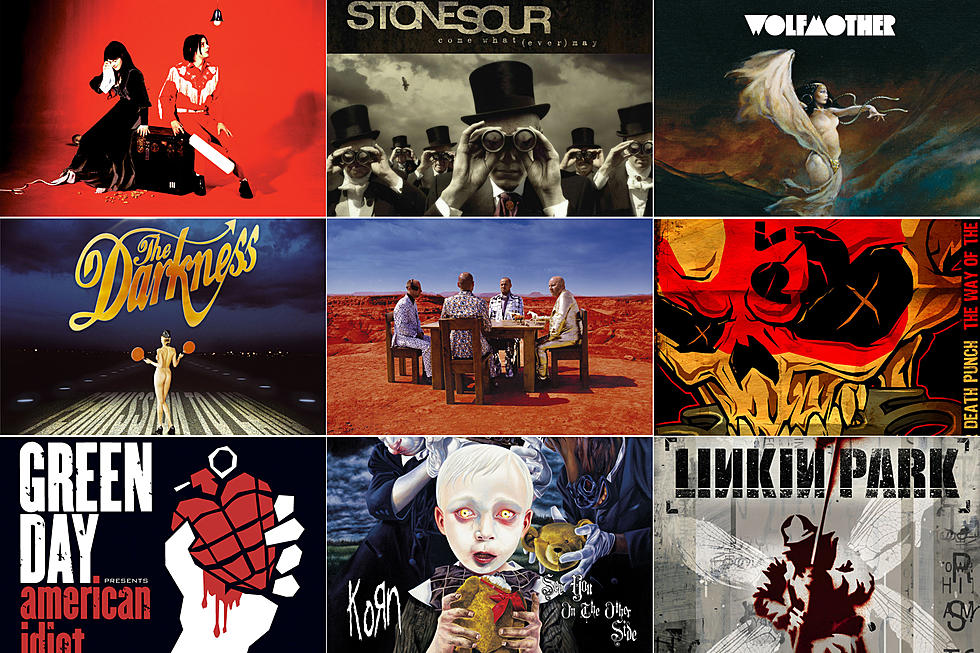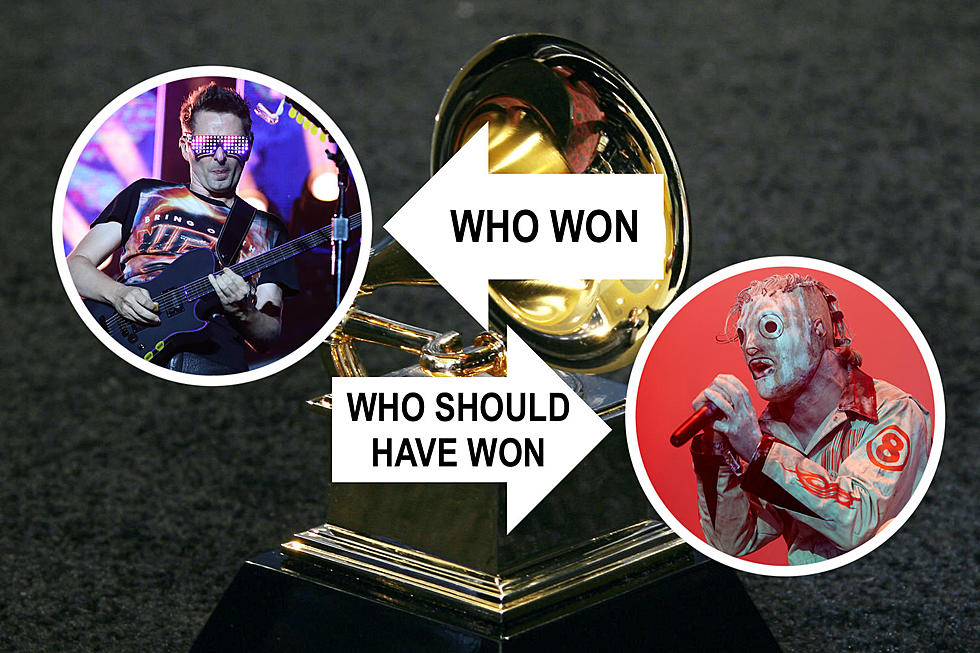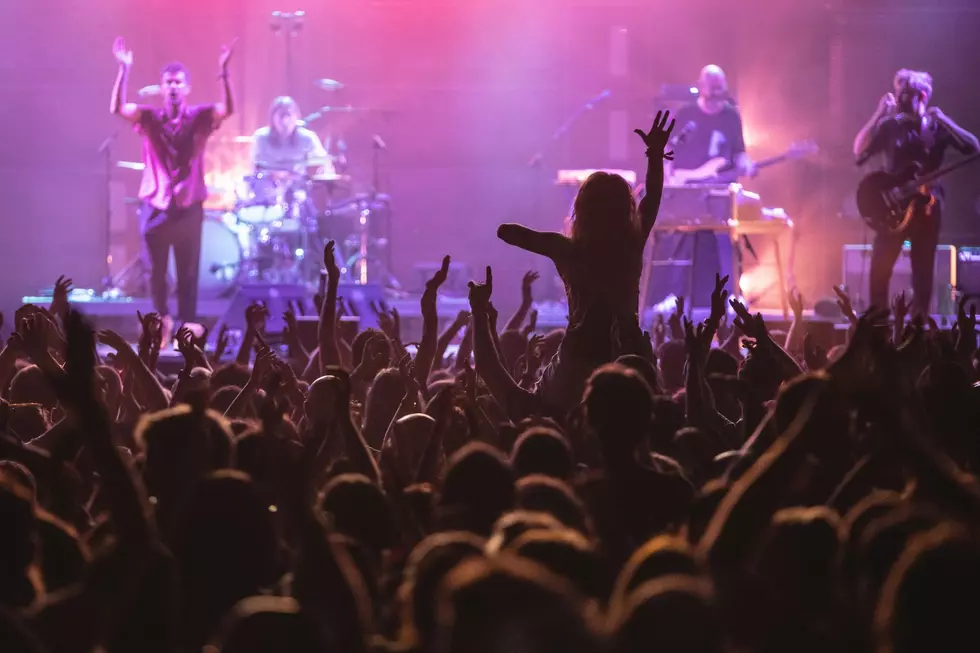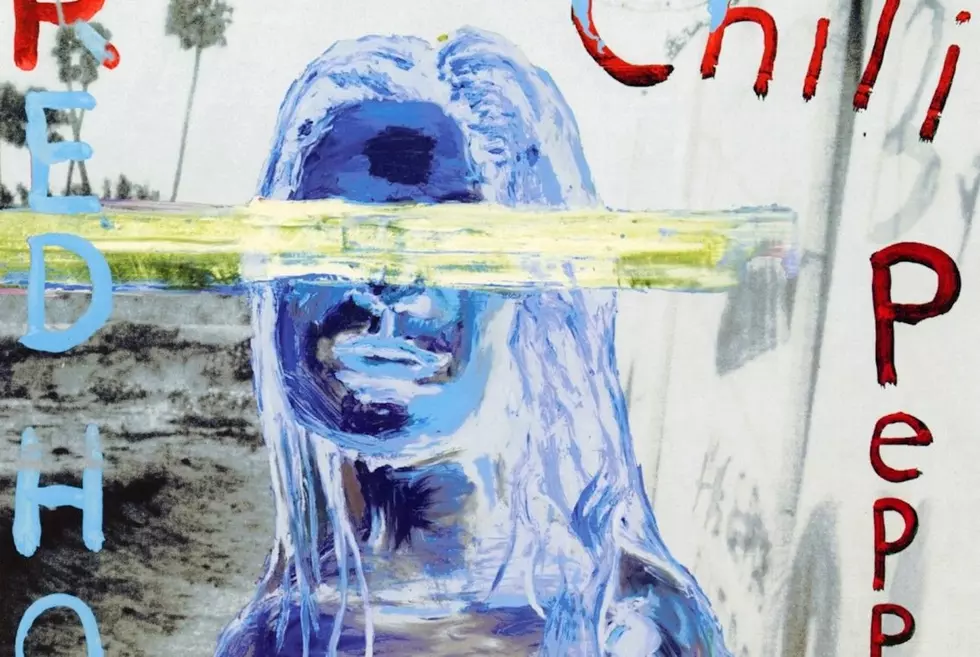
20 Years Ago: Red Hot Chili Peppers Struggle Mightily With ‘By the Way’
In retrospect, there was a great deal for the Red Hot Chili Peppers to celebrate with their eighth studio album.
Released on July 9, 2002, By the Way was a multi-million-selling success that gave the group its highest chart position to date at No. 2 on the Billboard 200 while spawning a pair of No. 1 Alternative Airplay singles in "Can't Stop" and the title track. The LP was also rabidly embraced by the U.K., where the seven-times-platinum By the Way hit No. 1 and led to a record-setting three-night run before an estimated 240,000 fans at Hyde Park in London.
Internally, however, By the Way was created amid tense circumstances that almost led to the departure of a founding member.
"It wasn't the smoothest album we've ever made," drummer Chad Smith told this writer back then. Guitarist "John [Frusciante] was in a real creative spurt and had an idea and vision for what he wanted to do – and it was great but ... we're a band that's used to being very collaborative and interactive, so there was some tension, yeah."
Frusciante left in 1992 during the massive success of Blood Sugar Sex Magik, then returned to the fold in 1998. The resulting Californication was a triumphant 7 million-selling comeback, and that "seemed to fuel John into wanting to take a bigger role" on By the Way, according to producer Rick Rubin.
"John now had a stronger voice than ever," Rubin said in 2010's The Red Hot Chili Peppers: An Oral/Visual History. "They jammed, as always. It was just more of an inflexible, 'my way is right' kind of thing."
Particularly rankled was bassist Flea, who co-founded the band with frontman Anthony Kiedis in 1983 and felt left out of the creative process. "Flea would tell me, 'This is so much less fun because I feel like my voice doesn't count as much,'" Rubin recounted. "Flea felt his power in the band was being diminished."
Watch the Red Hot Chili Peppers' Video for 'By the Way'
Frusciante acknowledged in The Red Hot Chili Peppers: An Oral/Visual History that "definitely a disconnection started to happen between me and Flea. It was difficult, that record, for Flea and mine's relationship."
Frusciante actually came into By the Way with a dual vision, a mix of songs influenced by punk-rock groups such as the Damned and Discharge and others tunes that hewed toward English pop and alternative rock, such as the Smiths and Siouxsie & the Banshees. The Beatles, Beach Boys and '50s doo-wop groups were also sources he drew on, and Frusciante also spoke about listening to Emerson, Lake & Palmer frequently while the 16-track set was being made. "Cabron" seemed to specifically draw on Jethro Tull guitarist Martin Barre's work on Aqualung.
"I wanted to do a Chili Peppers album that didn't sound like the Chili Peppers," Frusciante admitted in the book. "I didn't think we should have any funk on that album. We had already done that a lot, but at the time Flea wanted to do more funk, and I wasn't feeling it. I wanted to do a Chili Peppers album that didn't sound like the Chili Peppers."
For his part, Flea said "the thing that was frustrating for me about the creation of By the Way had nothing to do with the style of music. It was the lack of camaraderie that was difficult to me." It got bad enough that Frusciante said Flea "was going to quit before the By the Way tour. He really hated making the record, and he didn't feel like he could express himself anymore in the context of the band."
The warring sides eventually talked it out – taking part in "a big sit-down," according to Smith – and Frusciante said "things got better between us and we started connecting more musically. It was a really nice time for us."
The "power struggle" between Flea and Frusciante was nothing new, according to Smith, and had gone on even during the guitarist's first stint in the Red Hot Chili Peppers. "It wasn't a rift so much as John taking the reins of what direction we should be doing by coming in with prepared ideas," Smith said. "He felt strongly about the way it should sound."
Watch the Red Hot Chili Peppers' Video for 'Can't Stop'
Meanwhile, Kiedis' lyrics on By the Way were more directly personal, inspired by new love and sobriety. "All these brilliant people were trying to impose their will on the outcome of this massive amount of music we'd accumulated," he lamented. "As it unfolded and we got into the studio and we had all this music, tensions doubled and tripled. John had a real strong vision of what he wanted the production to be like – and it was a case of too many production chefs complicating everything. There was no right or wrong, because John had a vision, Flea had a vision, Rick had a vision."
In the end, Rubin imposed his sensibility to bring By the Way into focus. He winnowed Frusciante's ideas into something cohesive, favoring the more melodic and tonally lush songs in the mix. "Rick was really not diggin' the punk things," Frusciante noted. "He thought the melodic things were much more original and exciting. We ended up throwing away all the punk things and focusing on the melodic things."
The title track, "Can't Stop" and "Throw Away Your Television," meanwhile, gave Flea some funk paths to play through, while "Warm Tape" and "Tear" were dominated by keyboards. (Flea played trumpet on the latter.) David Campbell arranged string parts on other songs.
"We were a little nervous about how people would like it, 'cause it was different – but just a little," Smith said after the album's release. "But you gotta grow, right? I think there's enough of the older Chili Peppers flavor in it to bring people in and then hopefully dig the different stuff we tried."
A number of the other tracks from the "massive amount of music" were eventually released as bonus tracks on singles, as part of an expanded iTunes version of the album and, in August 2014, as part of an online leak.
Frusciante stayed with the Red Hot Chili Peppers for another seven years and one more album, 2006's Stadium Arcadium, before leaving in 2009. He returned again in 2019 and was part of the 2022's Unlimited Love, which became the group's first U.S. chart-topper since Stadium Arcadium.
Red Hot Chili Peppers Albums Ranked
More From 98.3 The Snake


